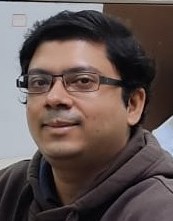We are pleased to announce the call for papers for the
1st
International Workshop on Informing ML with Knowledge Engineering for
Hybrid Intelligent Systems (HHAI-KEM),
hosted by
the Fourth International Conference on Hybrid Human-Artificial
Intelligence (HHAI 2025),
to be held in Pisa, Italy (and Hybrid) from June 9-13, 2025.
Overview
Integrating Knowledge Engineering (KE) with Machine Learning (ML) offers a promising approach to building trustworthy AI systems. This integration combines the strengths of data-driven learning with formal, structured reasoning, enabling AI models to be both highly accurate and explainable. By leveraging structured knowledge—such as electronic health records in healthcare, scientific axioms, or legal guidelines—AI systems gain the ability to perform commonsense reasoning, enhancing their reliability and making them more knowledge-aware. Although using symbolic methods for knowledge representation and reasoning can sometimes limit scalability, their ability to provide verifiable, human-understandable explanations makes them especially valuable in mission-critical applications.
The workshop hosted by HHAI 2025 seeks to bridge the gap between KE and ML by exploring the synergies between these fields. A key focus is on developing hybrid human-AI systems that utilize multimodal approaches, incorporating various forms of data including text, speech, images, and video. This collaborative forum will bring together researchers and practitioners from academia and industry to discuss cutting-edge research and innovative strategies for integrating KE and ML. Ultimately, the goal is to advance the development of AI systems that are not only robust and efficient but also transparent and human-centric, addressing both the challenges and benefits of merging symbolic reasoning with data-driven techniques.
Important Dates
- Paper Submission (Early Deadline):
April 28, 2025May 4, 2025 (23:59 AoE) - Paper Submission (Late Deadline): May 11, 2025 (23:59 AoE)
- Acceptance Notification: (Early) May 11, 2025 | (Late) May 18
- Camera-ready Version: May 25, 2025
- Workshop: June 9, 2025
- Conference: June 9–13, 2025
Organizing & Program Committees
Organizing Committee
- Shreya Banerjee, University of New Orleans
- Atriya Sen, Oklahoma State University
Program Committee
- Shreya Banerjee, University of New Orleans
- Atriya Sen, Oklahoma State University
- Anthony Marchiafava, Oklahoma State University
- Henry Fordjour Ansah, University of New Orleans
- TBD
Topics of Interest
- Neuro-Symbolic Knowledge Representation
- KRR and Commonsense Reasoning in ML
- Artificial General Intelligence
- KE with Generative AI and Large Language Models
- KE in Multi-Agent AI Systems
- KRR in Hybrid AI Systems for Health and Other Application Domains
- Human-Centric Multimodal AI
- Human-AI Interaction and Human-in-the-loop
Paper Submission & Review Process
Authors should submit papers electronically in PDF format to Easy Chair. Please use CEURART style formatting to write single column papers to be published with CEUR-WS.
Paper Types:
- Regular Paper: 10-12 pages (excluding references)
- Short Paper: 5–9 pages (excluding references)
- Abstract/Extended Abstract: Title, author, and abstract only
- Poster Paper: A title, author and a very short text (less than 5 “standard” CEUR-WS pages). Poster papers will mostly be handled like an abstract.
All submissions will be peer-reviewed through a double-blind process. Papers should be anonymized and written in English. Submissions of regular and short papers should be original work without substantial overlap with pre-published papers. For further details, please see the submission guidelines.
Accepted submissions shall be submitted to CEUR-WS.org for online publication in CEUR Workshop Proceedings (Scopus indexed). Contributions will be presented either as oral presentations (lightning talks) or posters.
Note: Though in-person participation is highly encouraged, in case of travel-related difficulties, remote attendance and presentations are permitted.
Speakers

Keynote Speaker 1: Dr. Saptarshi Ghosh
Talk: Natural Language Processing for the Legal Domain: Challenges and Recent Developments
Saptarshi Ghosh (http://cse.iitkgp.ac.in/~saptarshi/) is an Associate Professor of Computer Science and Engineering, at Indian Institute of Technology, Kharagpur. His research interests include Legal analytics, Natural Language Processing, and Algorithmic bias and fairness. He obtained his Ph.D. in Computer Science from the same institute, and was a Humboldt Post-doctoral Fellow at Max Planck Institute for Software Systems, Germany. He has published more than 100 research papers in reputed conferences and journals, and has investigated more than 15 research projects sponsored by the Government of India and various industries. He presently leads a Max Planck Partner Group focusing on Algorithmic bias and fairness at IIT Kharagpur. He is a Fellow of The Institution of Engineers (India). His works on Law-AI have been published at top AI conferences including AAAI, ACL, EMNLP, and SIGIR, and have been awarded at the top Law-AI conferences, including the Best Paper award at JURIX2019 and Best Student Paper Award at ICAIL2021. He is presently the Section Editor on Legal Information Retrieval for the Artificial Intelligence and Law journal, the most prestigious journal in Law-AI.
Abstract
The field of Law has become an important application domain of Natural Language Processing (NLP) due to the recent proliferation of publicly available legal data, and the socio-economic benefits of mining legal insights. Additionally, the introduction of Large Language Models (LLMs) has brought forth many applications, questions, and concerns in the legal domain. This talk will discuss some of the challenges in processing of legal text, and some popular research problems, including summarization of long legal documents, identifying relevant statutes from fact descriptions, and pre-trained language models for the legal domain.

Keynote Speaker 2: Dr. Konstantine Arkoudas
Talk: Superintelligence and Scientific Progress
Konstantine has been deeply involved in AI since his graduate school days at the MIT AI Lab, where he earned his PhD. After completing his postdoc, he served as research faculty at the RPI Cognitive Science department, and later moved to industry as a senior research scientist focusing on machine learning, data analytics, and NLP, particularly deep semantic parsing. With over 50 publications in top AI conferences and journals, multiple book chapters, and a textbook on computerized mathematical proofs, Konstantine has made significant contributions to several research areas in AI and computer science. He also has many years of experience leading AI initiatives in industry. He spent seven years at Bloomberg AI, where he led the Question Answering and Autocomplete groups, followed by executive roles at Amazon, where he oversaw several Natural Language Understanding (NLU) teams in Alexa AI and Amazon Search. In addition to his corporate roles, Konstantine has been involved in several AI startups, most recently as the CTO of a generative AI startup matching patient electronic medical records to clinical trials. He is currently an advisor and consultant for a number of companies, in sectors ranging from AI-based mental therapy to cybersecurity, pharma AI, and fintech.
Abstract
In this talk I will undertake a critical analysis of the core arguments given in support of the singularity hypothesis, highlighting a number of conceptual confusions and empirical problems. After a brief review of how the notion of intelligence in general developed in 20th-century psychometrics, I will question the coherence of superintelligence as a concept and its promise for achieving scientific breakthroughs. I will focus especially on the making of science and will suggest that popular scenarios envisioning superintelligent machines that cure all known diseases and make revolutionary scientific innovations that advance our understanding of the universe are implausible and rely on obsolete Baconian views of scientific progress.
Tentative Program Schedule
| Time | Title | Presenters |
|---|---|---|
| 09:00 - 09:30 | Welcome and Workshop Overview | |
| 09:30 - 10:30 | Keynote Speaker 1: Dr. Saptarshi Ghosh Talk: Natural Language Processing for the Legal Domain: Challenges and Recent Developments |
Dr. Saptarshi Ghosh |
| 10:30 - 11:00 | ☕ Coffee Break | |
| 11:00 - 11:30 |
Paper Presentation 1 Constructing Agent Brains Using Large Language Modeling and Applications in Natural Language Processing |
Soheil Saneei |
| 11:30 - 12:00 | Paper Presentation 2 An Investigation into the Understanding and Reasoning Capabilities of LLMs for Legal Statute |
Shounak Paul |
| 12:00 - 12:30 | Paper Presentation 3 A Novel Hybrid Deep Learning Technique for Speech Emotion Detection using Feature Engineering |
Dr. Shreya Banerjee |
| 12:30 - 13:00 | Paper Presentation 4 Synthetically Generated Proofs in Propositional Logic and Language Model Reasoning Performance |
Anthony marchiafava |
| 13:00 - 14:30 | 🍴 Lunch | |
| 14:30 - 15:30 | Keynote Speaker 2: Dr. Konstantine Arkoudas Talk: Superintelligence and Scientific Progress |
Dr. Konstantine Arkoudas |
| 15:30 - 16:00 | Paper Presentation 5 Natural Language to SVG Generation by Enforcing Constraints through Reinforcement Learning |
Henry Ansah |
| 16:00 - 16:30 | ☕ Coffee Break | |
| 16:30 | Closing Remarks and General Discussion |